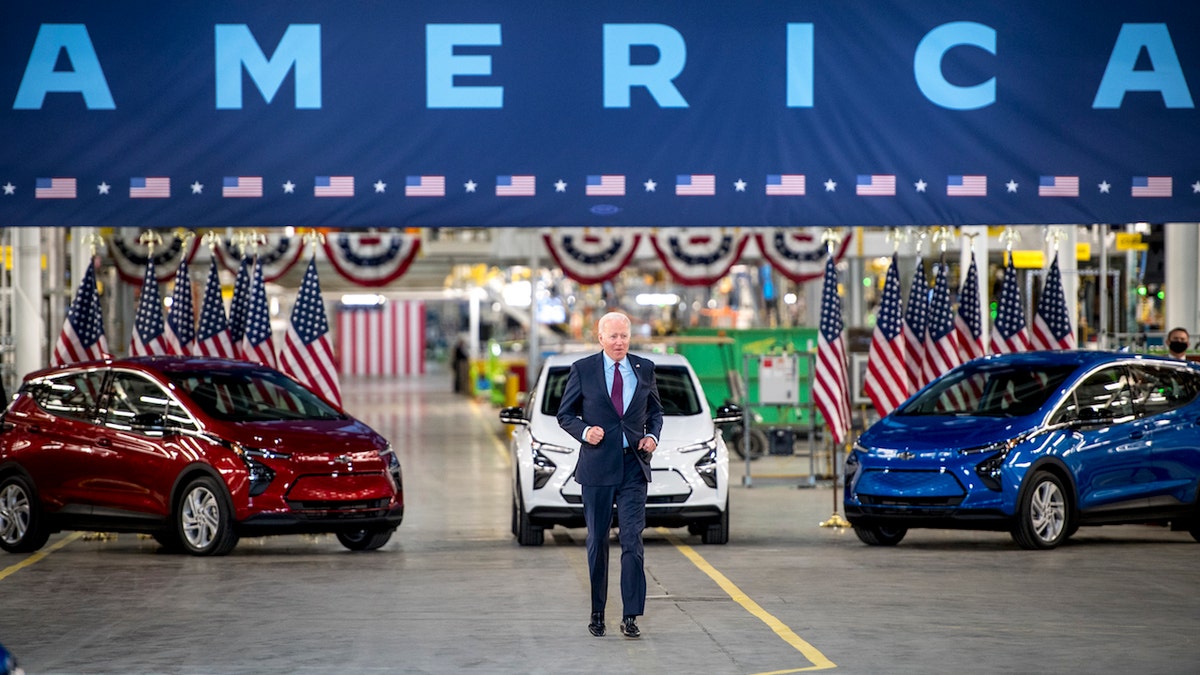Fox News Flash top headlines for September 13
Fox News Flash top headlines are here. Check out what's clicking on Foxnews.com.
I traveled to Lordstown, Ohio, this summer to meet former General Motors workers who lost their jobs when the auto plant there shut down after 52 years. The company announced the shutdown and then, shortly after, announced plans to build a factory in Mexico. Nearly 1,500 jobs were lost when the plant closed. The workers there told me that these were good jobs that provided family-sustaining incomes. And now they’re gone.
Americans aren’t angry for imaginary reasons; they’re angry because of experiences like this. Workers in this country have been wronged, and the American dream no longer feels in reach.
We are in desperate need of what I call a new economic patriotism — a worker-centered plan to make America a manufacturing superpower again and revive factory towns hurt by deindustrialization. At the forefront of this effort is the revival of the steel industry.
Demand for steel is so high in the U.S. that we are the world’s largest importer of the metal, importing roughly three times more than we produce. From electrical steel in car motors, emergency generators and power transformers, to steel plates in our submarines and onshore and offshore wind towers, there is a huge demand for steel all throughout the U.S economy that our domestic supply cannot meet.

President Joe Biden makes his entrance on November 17, 2021, at General Motors' Factory ZERO electric vehicle assembly plant in Detroit, Michigan. (Nic Antaya/Getty Images)
What is unacceptable is that China dominates the global steel market, with nine out of 15 of the top steel producers globally. The United States doesn’t have a single company on that list. Producing almost 10 times more steel than the next highest-producing country, China is far and away the biggest culprit of excess global steelmaking capacity. This overcapacity distorts steel prices around the world and puts immense pressure on market-based U.S. producers.
China’s dominance in steel poses significant risks not only to our economy, but also to public safety, our energy sector and our national security. People want safe bridges and cars, reliable electric grids and resilient power transformers. If a wartime mobilization is ever ordered, steel will be needed for equipment like tanks, planes and weapon systems.
That’s why I am committed to introducing a modern steel bill to bring steel production back to the Midwest and restore our nation's leadership in this critical sector. My vision is to build a dozen steel-making facilities testing modern, advanced technologies and to do this in communities across the country from Lordstown, Ohio to Detroit, Michigan to Johnstown, Pennsylvania, with a steel-making history. The bill will also support the modernization of existing plants to ensure those good jobs remain.
The bill will help rejuvenate downtowns, bringing them back to their former glory and attract and support a larger steel ecosystem in the region. It will fund research, offer grants and provide tax incentives to companies choosing to adopt advanced steel-making processes and equipment.
And it will push back against unfair trade practices from countries like China, by strengthening enforcement of anti-dumping and countervailing duties and other tools, to level the playing field.
We can do this in a way that lowers carbon emissions and protects our planet. China’s steel production accounts for over half of global carbon emissions from steel production. On average globally, every metric ton of steel produced leads to 1.85 metric tons of CO2 emissions. But in China, this is about 2 tons (with some estimates as high as 3 tons). In the U.S., it’s just under 1 ton.
That’s because our manufacturers are already investing in lower carbon footprint production methods, including the use of recycled metal scrap and direct reduction of iron. These plants will also be able to capitalize on innovations in the use of hydrogen in steelmaking, which when fully operational can make U.S. steel production, at least, four times cleaner than what’s produced in China.
We are perfectly positioned to lead globally on modern steel.
Most importantly, the bill will defend the right for workers to form a union. Steel jobs are good jobs. They pay high wages, provide good benefits and offer a dignified life to workers and their families. In 2017, steel jobs paid, on average, 27 percent more than the median earnings for men and 58 percent more than the median for women.
CLICK HERE TO GET THE OPINION NEWSLETTER
This bill will keep it that way and ensure that wages keep up with inflation. It will also include workforce training and job placement programs to invest in the next generation of workers.
As a co-author of the CHIPS and Science Act, I know that we have the power to revitalize industries and become a manufacturing powerhouse again. Already, thanks to the law, Intel has made a $20-billion dollar commitment to build two new chip factories in Ohio, which will create around 3,000 new jobs with an average salary of $135,000 dollars. While some of these jobs require a college degree, more than half of them do not.
If we can do it for semiconductor chips, why can’t we do it for steel? If we can do it for steel, why can’t we do it for other critical industries like aluminum, PPE and important drugs?
The bill will help rejuvenate downtowns, bringing them back to their former glory and attract and support a larger steel ecosystem in the region. It will fund research, offer grants and provide tax incentives to companies choosing to adopt advanced steel-making processes and equipment.
CLICK HERE TO GET THE FOX NEWS APP
Revitalizing American industry will not be an easy task, but it is a necessary one. This bill is just one piece of a larger vision for a new economic patriotism that can transcend political divisions and unite us around a common mission. Together, we can bring back industries like steel, restoring America as the workshop of the world and respecting the dignity of all workers.
Ro Khanna represents the 17th Congressional District of California and is a champion for revitalizing American manufacturing and creating good-paying jobs.













































